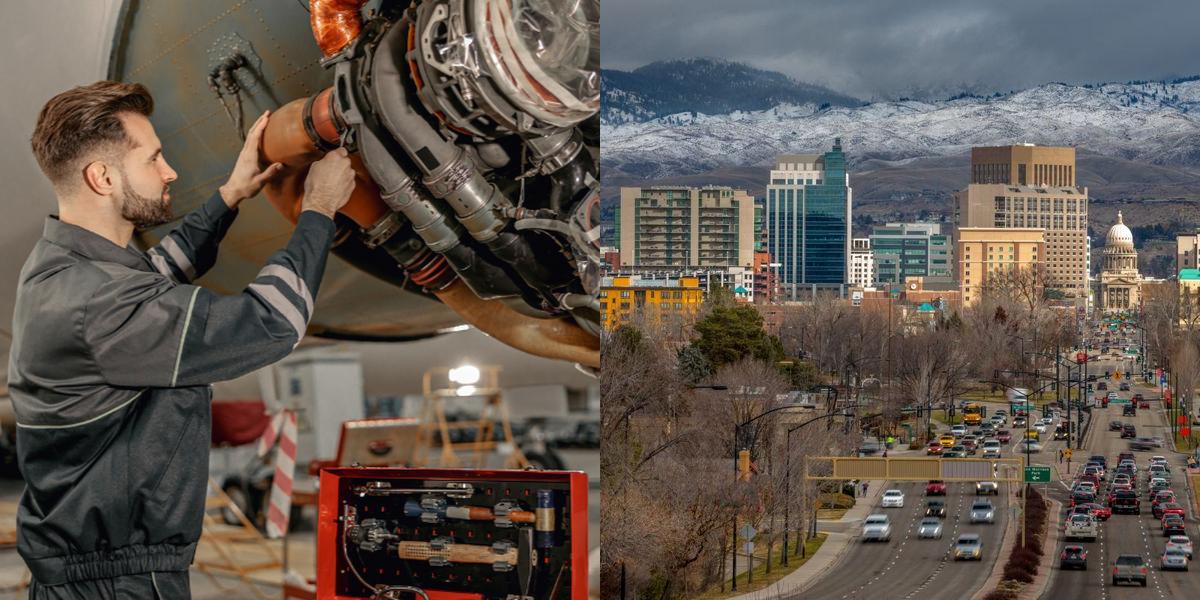How to Become an Aviation Mechanic in Idaho

Are you interested in a career as an Aviation Mechanic in Idaho? If so, you're in the right place. In this blog post, we will cover everything you need to know about becoming an Aviation Mechanic in Idaho, including what they do, where they work, the requirements, and where to find classes.
Step 2: Network in the Aviation Industry
Networking is crucial in any industry, and the aviation industry is no exception. Attend industry events, join professional organizations, and connect with other professionals in the field. Networking can lead to job opportunities and help you build valuable connections within the industry.
Step 3: Search for Job Openings
Utilize online job boards, company websites, and aviation-specific job sites to search for job openings. Many aviation companies also attend career fairs and host recruitment events, so be sure to keep an eye out for these opportunities. Additionally, consider reaching out to local aviation companies directly to inquire about any job openings.
Step 4: Prepare for Interviews
Once you have secured an interview, it's essential to prepare thoroughly. Research the company beforehand, familiarize yourself with their operations, and come prepared with questions to ask the interviewer. Be ready to showcase your knowledge, skills, and passion for the industry.
Step 5: Continue Learning and Growing
The aviation industry is constantly evolving, and it's crucial to stay updated on the latest advancements and industry trends. Consider pursuing additional certifications or specialized training to enhance your skills and make yourself more marketable to potential employers. Continuing education shows employers that you are committed to your profession and willing to invest in your career development.
Career Paths and Opportunities after Becoming an Aviation Mechanic
Becoming an Aviation Mechanic opens up a world of career paths and opportunities. Here are some of the options you can explore after obtaining your Aviation Mechanic certification.
Aircraft Maintenance Technician
As an Aviation Mechanic, you can work as an Aircraft Maintenance Technician for an airline, maintenance repair organization (MRO), or aircraft manufacturer. In this role, you will be responsible for performing routine maintenance, inspections, repairs, and troubleshooting on aircraft to ensure their safe and efficient operation.
Avionics Technician
Avionics Technicians specialize in the electronic systems of an aircraft, including communication, navigation, and autopilot systems. In this role, you will install, inspect, troubleshoot, and repair avionics equipment. Avionics Technicians often work for airlines, MROs, or avionics repair stations.
Quality Control Inspector
Quality Control Inspectors play a crucial role in ensuring the safety and airworthiness of aircraft. In this role, you will inspect aircraft and aircraft components to ensure they meet regulatory standards and are in compliance with maintenance and repair procedures. Quality Control Inspectors work for airlines, MROs, and aircraft manufacturers.
Aircraft Structures Technician
Aircraft Structures Technicians specialize in repairing and maintaining the structures of an aircraft, including the fuselage, wings, and tail. In this role, you will perform structural repairs, fabricate replacement parts, and conduct inspections to ensure the structural integrity of the aircraft.
Career Advancement Opportunities
As you gain experience and expertise in the field, there are numerous opportunities for career advancement. You can progress to supervisory or managerial roles, where you will oversee a team of Aviation Mechanics and be responsible for coordinating maintenance operations. Additionally, you can pursue further education and training to become an Aircraft Inspector, Aircraft Maintenance Engineer, or even an Aircraft Design Engineer.
Final Thoughts
Becoming an Aviation Mechanic is a rewarding career choice for those with a passion for aviation and a desire to work with their hands. By following the steps outlined in this guide, you can obtain your Aviation Mechanic certification and kickstart your career in the aviation industry. Remember to continue learning and growing, stay updated on industry advancements, and take advantage of networking opportunities to further your professional development. With dedication and hard work, you can build a successful and fulfilling career as an Aviation Mechanic.
If this article isn't quite hitting the mark for you, why not give these other articles a try:

Jessa Guzon is a member of the School Growth and Customer Success Team in Dreambound. She finds joy in assisting both schools and students in reaching their goals by answering their queries and connecting them with the right people. Outside her professional role, Jessa is a happy-go-lucky person with a thirst for adventure.




